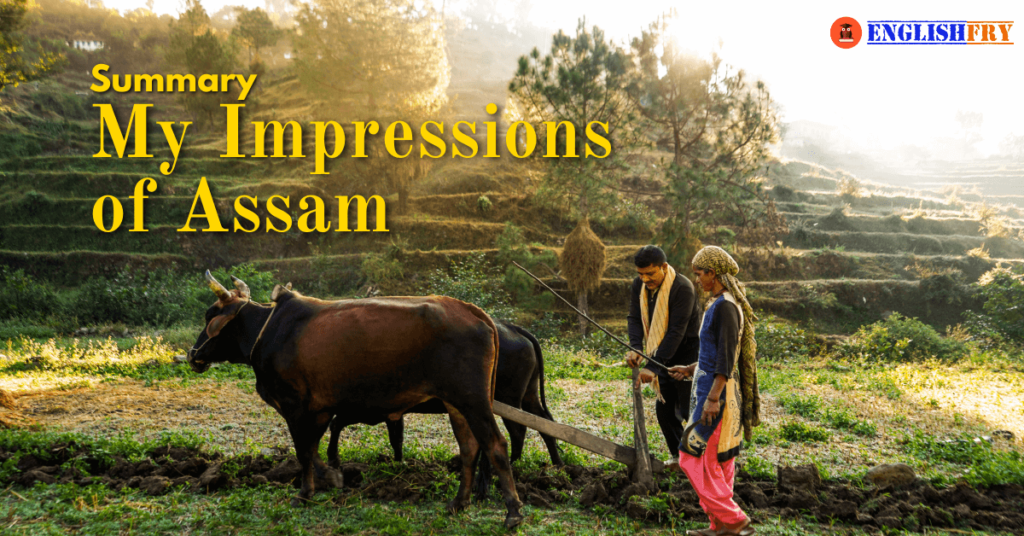Table of Contents
ToggleAbout Verrier Elwin
Introduction
Verrier Elwin (1902-1964) was a ‘self-made anthropologist’ and a public intellectual-cum-reformer of his time; an ethically grounded and committed institution-builder and an iconoclast, who could translate the real voices of the tribal communities to both the academic and administrative discourses in postindependent India. Later, he took Indian citizenship. Elwin made the forests in India his home and treated tribal communities of those habitats like his own kin. He occupied administrative and official positions pertaining to the development of tribal communities distributed in different parts of India and actively contributed to the process of nation-building.
Biographical Sketch
Verrier Holman Elwin, a resilient soul who defied early setbacks to lead an extraordinary life. While his academic journey did not secure him a scholarship at St. John’s College, he uncovered his academic prowess and inquisitiveness during his tenure at Oxford University. Here, he delved into the realms of English Literature and theology. Although he initially arrived in India as a missionary, his heart soon resonated with Gandhi’s unwavering pursuit of independence.
Spending four meaningful years at Gandhi’s ashram, he formed a profound bond with the iconic leader. His involvement in India’s quest for freedom, however, garnered disapproval from his church superiors back in his homeland. Despite initial resistance from the British authorities, he returned to India, albeit with restrictions on his political activities.
Choosing to reside amidst tribal communities, Elwin cast aside his Christian upbringing and embraced a novel concept of freedom, distinct from European modernity. In 1932, he relocated to a remote village in the Mandla district, completely immersing himself in the trials and tribulations of the impoverished forest-dwelling population.
In 1954, he proudly became an Indian citizen and was appointed as an anthropological adviser to the Indian Government. His focus shifted to the hill tribes of the northeast, as he advocated for Nehru’s initiatives concerning tribal communities. Settling in Shillong, Elwin championed these causes, leaving behind a lasting legacy as a public anthropologist in India. He was recognized with the esteemed Padma Bhushan and numerous accolades for his exceptional contributions.
Elwin’s multifaceted contributions spanned a wide spectrum, encompassing writing, social activism, and bureaucratic service. Notably, Ramachandra Guha, a historian and writer, celebrated the diversity of genres in which Elwin excelled, from poetry and religious texts to novels and anthropological monographs. Among his noteworthy works, his autobiography shines as a true masterpiece.
Elwin’s dedication to India ran deep. His transformative experience at Sabarmati in 1928 marked a pivotal shift in his identity, as he wholeheartedly embraced Indian culture and the fight for liberty. For him, the conflict was not merely a clash between India and Britain but a collective endeavor of diverse people pursuing a shared dream of freedom.
Despite the hurdles, such as language barriers, Elwin’s unwavering commitment to India ultimately earned him the role of Advisor on Tribal Affairs for the North Eastern Frontier Agency (NEFA) under the stewardship of Jawaharlal Nehru, India’s inaugural Prime Minister. His life serves as a testament to his enduring affection for India and its people.

Central Ideas
Verrier Elwin is known for his extensive study of tribals. Some of his main writings are focussed on tribal life and identity. His approach and method of research have inspired many anthropologists and sociologists. Let us learn about theses now.
The following are his five fundamental principles for tribal development, which is known as Nehru’s panchsheel:
(i) People should develop along the line of their own genius and we should
avoid imposing anything on them. We should try to encourage in every
way their own traditional arts and culture.
(ii) Tribal rights to land and forest should be respected.
(iii) We should try to train and build up a team of their own people to do the
work of administration and development. Some technical personnel from
outside will no doubt, be needed, especially in the beginning. But we
should avoid introducing too many outsiders into tribal territory.
(iv) We should not over administer these areas or overwhelm them with a
multiplicity of schemes. We should rather works through, and not in
rivalry to, their own social and cultural institutions.
(v) We should judge results, not by statistics or the amount of money spent,
but by the quality of human character that is evolved.
In this unit, we have navigated through the life and works of Verrier Elwin, who spent the major part of his life among various tribal communities in India.The conditions of his life and career made Elwin a privileged interpreter of tribal cultures, with a political conviction and a genuine concern for their rights. We learnt that Elwin was so deeply involved with life of different tribal communities in India that he would go to the forest with them and even stay with them. He contributed immensely to their lives through his administrative positions. Elwin’s descriptive accounts- (in works like ‘the Baiga’, ‘the Muria’ and ‘the Agaria’), distinguish him from his contemporary scholars in Indian anthropology. Elwin contributed a to our knowledge of India’s aboriginal populations. His monographs on such tribes as Baigas, Muria Gonds, Bondos and Saoras will be valued for a long time.

My Impression of Assam Question-Answers of class 11 AHSEC Assam Board English book and Previous year’s paper solution. Also a summary of the chapter Verrier Elwin along with important and extra question notes of 1st years.
Summary
Assam, the land of tea gardens, rolling hills, and lush forests, is a captivating region known for its rich culture and unique natural beauty. In this article, we embark on a journey with Verrier Elwin, who shares his awe-inspiring experiences, emphasizing the need to safeguard the culture, environment, and wildlife of this enchanting region. Join us as we uncover the main topics and keywords related to Assam’s beauty and preservation.
Discovering Kaziranga National Park: A Haven for Rhinoceroses
One of Elwin’s most memorable adventures was his visit to Kaziranga National Park, renowned for its majestic rhinoceroses. However, he was quick to observe a stark contrast to East African parks, where animals are diligently protected. In Assam, these magnificent creatures face a grave threat from poachers. Elwin passionately implores us all to unite in their defense, ensuring the safety of these remarkable beings.
Assam’s Cultural Treasures: The Naga Tribe’s Unique Death Chant
Elwin’s enthusiasm for the artistic contributions of the hill people shines through. He introduced us to the Kabuls, a Naga tribe, and their unique death chant—a cultural treasure at risk of fading into obscurity. He also lamented the decline of traditional stories and songs, lamenting the younger generation’s growing preference for Western music.
Celebrating Assam’s Artistic Prowess
Moreover, Elwin celebrated the artistic prowess of the hill people, marveling at their exquisite wood carvings, woven creations, and personal adornments. He commended their innate sense of color, tone, and balance that weaves harmony into their art. He encouraged the indigenous hill dwellers to take pride in their heritage, shielding it from extinction. He passionately urged all Assam residents to embrace the natural splendor and rustic allure of their rural communities.
Conclusion
Verrier Elwin’s vivid accounts paint a vibrant picture of Assam’s beauty, culture, and the urgent need for preservation. Join us in safeguarding this enchanting land and its enchanting people.
Assam’s allure lies not only in its picturesque landscapes but also in the rich tapestry of cultures that call this region home. Verrier Elwin’s journey through Assam reminds us of the importance of preserving these treasures for generations to come.
Question & Answers
1.What does Verrier Elwin say about the tradition of courtesy and hospitality in the modern world? What advice does he give to the people of Assam on this point?
Answer: Verrier Elwin mentions that courtesy and hospitality are rare in today’s competitive world. However, when he visited Assam, he was pleasantly surprised to find that ordinary people here are still very polite and friendly. He advises the people of Assam to hold on to this valuable tradition and not let it disappear. In simpler terms, Elwin is upset that people are no longer hospitable and friendly due to the competitive nature of the modern world. However, he is happy to see that the people in Assam still possess these qualities and encourages them to preserve their traditions of courtesy and friendliness.
2.What difference does Verrier Elwin draw between the game sanctuaries of Kenya and Kaziranga?
Answer: Verrier Elwin notes distinct differences between Kenya’s sanctuaries and Kaziranga. In Kenya, people cooperate to protect the sanctuaries, spending money and preventing poaching. Animals there feel safe and even approach roads. In contrast, Kaziranga presents an opposite scenario, with animals fearing humans.
3.What appeal does the author make to the scholars of Assam concerning the songs and poems of the state? Why does he make this appeal?
Answer: The author urges Assamese scholars to document the songs and poems of the countryside, as they are vanishing. Verrier Elwin was delighted to hear a wonderful folk song in a distant mountain village in Kabul. However, he was concerned because he realized that these beautiful folk songs and poems from the Assamese countryside aren’t being collected or preserved in books. These old songs are disappearing quickly as today’s youth prefer Hollywood jazz music. He appeals to Assam’s scholars to take action and record this beautiful music. This way, they can preserve a valuable treasure of folklore and myths from the hills of Assam for future generations.
4.Why, according to Verrier Elwin, should wood carving be taught and encouraged in our educational centers?
Answer: Elwin was concerned about the future of these unique art forms. He strongly believed that they should not be lost. He suggested that the art of wood carving should be taught in educational centers because he wanted to make sure that they are preserved. This way, the knowledge and techniques of wood carving could be passed on to future generations. Elwin also emphasized the importance of conducting proper research on this topic, so that other people interested in learning about tribal art forms could have the chance to do so.
5.”You have a great treasure there” – What treasure is Verrier Elwin referring to, and what is his suggestion about the treasure?
Answer: Verrier Elwin refers to the rich cultural heritage of the hill people of Assam as the “great treasure.” He advises the hill people not to discard their culture and emphasizes its value, as once it’s lost, it can’t be recovered.
6.How long does a person need to know about a place?
Answer: To truly understand a place, one should spend a minimum of either two weeks or twenty years there.
7.How long did the author live in India?
Answer: The author resided in India for a quarter of a century, which is twenty-five years.
8.What does the author say about India?
Answer: The author considers India his second home and loves it deeply, despite living there for twenty-five years without feeling like he truly knows the country.
9.How long did the author live in Assam? Does he know Assam?
Answer: The author lived in Assam for four months, and he claims to have a good understanding of the country and its beauty.
10.What does he say about the people of Assam?
Answer: The author is impressed by the grace, charm, and beauty of the people of Assam, appreciating the positive human relationships he has encountered.
11.What, according to the author, is a rare thing in the modern world?
Answer: In the modern world, the tradition of hospitality and friendliness, as found in Assam, is a rare and precious thing.
12.What excited the writer soon after his arrival in Assam?
Answer: The writer was excited by a visit to the Kaziranga game reserve shortly after arriving in Assam.
13.When did the author go to East Africa, and how long did he stay there?
Answer: The author went to East Africa the previous year and spent two months there.
14.What is the animal that chased the writer during his visit to East Africa?
Answer: The animal that chased the writer during his visit to East Africa was a female hippopotamus.
15.What does the author say about the rhino seen in Assam?
Answer: The author mentions seeing a dozen rhinos in Assam within a couple of hours. He notes that some of them were agitated, but one older rhino was not.
16.What does the author say about food habits and the nature of the people in East Africa?
Answer: The author describes the people of East Africa as carnivorous and inherently violent in nature.
17.What was the author’s real purpose in coming to Assam?
Answer: The author’s main purpose in coming to Assam was to study the hill people and their way of life.
18.What did Gandhi say about the maidens of Assam?
Answer: Gandhi praised the maidens of Assam, commending them for weaving poems in their handlooms.
19.What wonderful thing do the people of Assam have?
Answer: The people of Assam possess a remarkable sense of color, appreciating and understanding it well.
20.What are the things that cannot be manufactured by a factory?
Answer: Good taste, an understanding of color and form, an appreciation for beauty, a love of rhythm, and a sense of musical harmony are things that cannot be produced in a factory or ordered from an office.
21.. what is the Sola topi?
Ans: A sola topi, traditionally worn in India, is a sun hat made from the stem pith of sola plants.
Certainly, let’s simplify that:
22.What are the things that Verrier Elwin loves about Assam?
Verrier Elwin truly loves Assam. He treasures its rich culture, the friendly and warm people, the simple way of life, and the beautiful countryside. He’s also delighted by the people’s keen sense of art, color, rhythm, and music.
Founder of Englishfry.com, a captivating and knowledge-driven blog & Founder of Android app/website Studyfunnel.com, an online Mock Test Series Portal. With a wealth of experience spanning over 16+ years, he has excelled as an Ex-professor, Teacher, Author of Book “Island of Illusion”, Website Developer, Graphic Designer,Blogger,Poet, and Creative academic content writer. His tryst in Literature helped him realize his love for writing and telling stories. A tech-savvy language nerd by day and, a passionate writer by night, he now translates his experiences into tales of wisdom served with a side of humor.His widely recognized profound insights ,captivating writing style makes him contribute to prestigious publications and a sought-after authority in the field.








